Like your body, you also need some essential nutrients for hair growth. Healthy hair necessitates a specific set of nutrients. Unfortunately, no hair care treatments or techniques can assist if the hair lacks its nutrients for growth. On the other hand, nutrients like vitamins, minerals, proteins, and polyunsaturated fats can help stimulate the hair follicles, boost hair growth, and improve hair density (1), (2), (3). This article outlines the seven nutrients that help maintain and protect your hair’s health. For more details, keep scrolling down!
In This Article
7 Best Nutrients For Hair Growth (With Foods List)
1. Protein And Amino Acids
Hair is made of keratin protein. And amino acids are the building blocks of proteins. Sulfur amino acids, such as cysteine and methionine, are precursors to keratin hair protein synthesis. The rate of hair growth and the diameter of the hair shaft are dependent on cysteine. L-lysine, on the other hand, is present in the inner part of the hair root and is responsible for the shape and volume of hair (4).
Hence, consume 0.8-0.9 grams of protein per kg of your body weight to keep your hair healthy.
Here are some sources of protein:
- Plant Protein Sources: Lentils, kidney beans, garbanzo beans, peas, broad beans, soybeans, edamame, pumpkin seed, sunflower seed, sesame seed, buckwheat, hulled barley, barley groats, brown rice, graham bread, rye whole-meal bread, pistachio, almonds, walnuts, pecan, and peanuts.
- Animal Protein Sources: Chicken, turkey, fish, veal, beef, eggs, cottage cheese, and yogurt.
2. Omega-3 PUFA
Omega-3 PUFAs (Polyunsaturated fatty acids) (EPA and DHA) help reduce inflammation and improve the hair follicle growth cycle. A 2018 study found that mackerel-derived fish oil (rich in omega-3 fatty acids) could help promote hair growth by activating the anagen (growth)phase of the hair follicles (5). Another study showed that arachidonic acid (an omega-6 PUFA) helped promote hair growth by increasing the expression of growth factors and stimulating the hair follicles (6).
Omega-3 Sources: Salmon, tuna, mackerel, sardines, flax seeds, olive oil, walnuts, and wheat sprouts.
3. Antioxidants
Inflammation, UV radiation, and an unhealthy lifestyle can lead to oxidative stress(7). Antioxidants help reduce oxidative stress and its effect on hair growth and aging (8). Consume foods that contain vitamins A, C, and Ethat have antioxidant properties to help scavenge the harmful free oxygen radicals and reduce oxidative stress(7).
Antioxidant Sources: Pumpkin, carrot, beetroot, tomato, broccoli, eggs, oranges, lime, melon, watermelon, grapefruit, nuts, seeds, and olive oil.
4. Vitamins
Vitamins are essential nutrients for hair growth. They can help treat non-scarring alopecia or female pattern hair loss (2).
- Biotin (Vitamin B7)
Biotin is vitamin B7 and required for proper growth of the hair and nails(9). A study found 38% of women who complained of hair loss had biotin deficiency (10). Genetic factors, intestinal problems, smoking, and excessive consumption of alcohol can lead to biotin deficiency. Pregnancy and lactation can also reduce biotin levels.
Biotin Sources: Egg yolk, pork liver, beef, chicken, white mushroom, cheese, yogurt, cow milk, oats, wheat germ, tomato, lettuce, potato, spinach, carrot, and apple.
- Vitamins B6 And B12
Studies show that vitamin B6 can help reduce alopecia or female pattern hair loss (11). And vitamin B12 deficiency might lead to hair loss (2). Hence, proper intake of vitamins B6 and B12 can help reduce hair fall and promote healthy hair growth.
Vitamins B6 And B12 Sources: Eggs, fish, chicken, turkey, milk, cereals, beans, spinach, and potato.
- Pantothenic Acid (Vitamin B5)
Pantothenic acid (vitamin B5) plays a crucial role in hair growth. It has anti-inflammatory properties, protects and regulates the sebum glands, moisturizes the hair strands, and accelerates melanin creation (4). ). Research shows that the combination of calcium pantothenate(calcium salt of vitamin B5)and zinc sulfate helps control hair loss in women (12). It also helps in the prevention and treatment of graying hair (13).
Pantothenic Acid (Vitamin B5) Sources: Eggs, liver, soya, mushroom, milk, beans, whole grains, and leafy vegetables.
- Vitamins B1, B2, And B3
Deficiency in vitamins B1 (thiamine), B2 (riboflavin), and B3 (niacin) can lead to hair fall (1). The hair follicles need a healthy dose of these vitamins to grow and prevent premature hair fall.
Vitamins B1, B2, And B3 Sources: Pork, beef, chicken, turkey, fish, liver, soy products, broccoli, spinach, asparagus, grains, legumes, nuts, seeds, and cereals.
- Folic Acid (Vitamin B9)
Folic acid or folate deficiency is common in people with alopecia areata (14). Consumption of foods rich in folic acid or dietary supplements can help reduce hair fall.
Folic Acid (Vitamin B9) Sources: Spinach, lettuce, turnip, broccoli, asparagus, edamame, lentils, avocado, mango, oranges, and nuts.
5. Minerals
Healthy hair growth and reduced hair fall require a proper dose of minerals that play a role in the hair’s growth cycle.
- Iron
Iron deficiency is very common in women. It is also linked to hair loss. However, iron-rich foods and iron supplements can help treat this condition(15).
Iron Sources: Beef, pork, beans, prunes, dates, apricots, dark leafy vegetables, and iron-fortified cereals.
- Selenium, Magnesium, And Copper
Selenium, magnesium, and copper may help reduce the risk of alopecia areata (14). These minerals are also required to synthesize thyroid hormones and prevent hypothyroidism, which is linked to hair loss (16).
Selenium, Magnesium, Copper Sources: Meat, liver, cod, tuna, shellfish, eggs, milk, spinach, legumes, nuts, seeds, whole grains, and chocolate.
- Zinc
Zinc levels are found to be lower in people with alopecia areata (14). Zinc is an enzyme activator and influences the hair cycle. Its deficiency may lead to slow hair growth, brittleness, and hair fall (4).
Zinc Sources: Meat, crab, lobster, poultry, beans, nuts, milk, cheese, whole grains, and cereals.
6. Trace Elements
Subscribe
Trace elements like calcium and iodine also play a vital role in hair growth. Calcium is required for stimulating the hair follicles, and iodine helps in the proper functioning of the thyroid gland (4), (17).
Calcium And Iodine Sources: Fish, seaweed, shrimp, yogurt, milk, cheese, green leafy vegetables, calcium-fortified juice, cereals, and iodized salt.
7. Liquids
Fluid consumption also affects hair growth. Consume at least 1.5 liters of water per day. You can also up your fluid intake by consuming juice, soup, tea, and coffee (4).
Consuming these vital nutrients can help improve your hair health, prevent hair fall, and stimulate hair growth. However, can the hair supplements do the same? Let’s find out in the next section.
Should You Take Hair Supplements?
Yes. If you have a busy lifestyle or nutritional deficiency, consult a dermatologist, and take hair supplements. Iron, folic acid, omega-3, and multivitamins are common hair supplements that can be taken as per the prescribed dosage.
Click here for the list of hair supplements that help reduce hair fall and stimulate hair growth.
Minerals, vitamins, proteins, and polyunsaturated fats are some of the major nutrients for hair growth. Also, the intake of antioxidants, minerals, trace elements, and liquid also plays a major role in hair growth. These nutrients can be obtained from food like lentils, sunflower seeds, brown rice, walnuts, peanuts, chicken, fish, beef, salmon, tuna, olive oil, grapefruit, watermelon, white mushroom, and egg yolk. Including these foods regularly in your diet helps promote hair growth. Hair supplements may also be prescribed to some people. However, do not take them on your own.
Frequently Asked Questions
What are the most important nutrients for hair growth?
The most important nutrients for hair growth are omega-3 fatty acids, protein, vitamins, minerals, and antioxidants.
Can stress cause hair loss?
Yes, stress can cause hair loss and slow down hair growth. Exercise, a healthy diet, and sound sleep can help reduce stress and stress-related hair loss.
Which hair masks are best for hair growth?
Coconut oil hair mask, green tea hair mask, and yogurt hair mask are great for hair growth.
How can I make my hair grow faster?
Follow these tips to make your hair grow faster:
- Consume 0.8 g protein per kg of your body weight.
- Consume iron-rich foods like dates and prunes.
- Avoid crash diets.
- Drink 3 liters of water per day.
- Brush your hair regularly.
- Shampoo your hair twice a week.
- Massage coconut oil onto your scalp for at least 10 minutes.
- Take vitamins and mineral supplements.
- De-stress yourself.
- Exercise regularly.
Sources
Stylecraze has strict sourcing guidelines and relies on peer-reviewed studies, academic research institutions, and medical associations. We avoid using tertiary references. You can learn more about how we ensure our content is accurate and current by reading our editorial policy.
- The Role of Vitamins and Minerals in Hair Loss: A Review
https://www.ncbi.nlm.nih.gov/pmc/articles/PMC6380979/ - Growing evidence of the beneficial effects of a marine protein-based dietary supplement for treating hair loss
https://pubmed.ncbi.nlm.nih.gov/28921826/ - Effect of a nutritional supplement on hair loss in women
https://pubmed.ncbi.nlm.nih.gov/25573272/ - Nutrition of women with hair loss problem during the period of menopause.
https://www.ncbi.nlm.nih.gov/pmc/articles/PMC4828511/ - Mackerel-Derived Fermented Fish Oil Promotes Hair Growth by Anagen-Stimulating Pathways
https://www.ncbi.nlm.nih.gov/pmc/articles/PMC6164340/ - Role of Arachidonic Acid in Promoting Hair Growth.
https://www.ncbi.nlm.nih.gov/pmc/articles/PMC4737836/ - Oxidative Stress: Harms and Benefits for Human Health
https://www.ncbi.nlm.nih.gov/pmc/articles/PMC5551541/ - Oxidative Stress in Ageing of Hair.
https://www.ncbi.nlm.nih.gov/pmc/articles/PMC2929555/ - Biotin
https://pubmed.ncbi.nlm.nih.gov/32119380/ - Serum Biotin Levels in Women Complaining of Hair Loss.
https://www.ncbi.nlm.nih.gov/pmc/articles/PMC4989391/ - Evaluation of vitamin B6 and calcium pantothenate effectiveness on hair growth from clinical and trichographic aspects for treatment of diffuse alopecia in women
https://pubmed.ncbi.nlm.nih.gov/11344694/ - Comparing the Effects of Zinc Sulfate, Calcium Pantothenate, Their Combination and Minoxidil Solution Regimens on Controlling Hair Loss in Women: A Randomized Controlled Trial
https://www.ncbi.nlm.nih.gov/pmc/articles/PMC5463555/ - Effect of Grey Hair Evulsion on the Response to Calcium Pantothenate in Premature Grey Hairs
https://pubmed.ncbi.nlm.nih.gov/28150658/ - The role of micronutrients in alopecia areata: A Review
https://www.ncbi.nlm.nih.gov/pmc/articles/PMC5685931 - The diagnosis and treatment of iron deficiency and its potential relationship to hair loss
https://pubmed.ncbi.nlm.nih.gov/16635664 - Zinc Deficiency Associated with Hypothyroidism: An Overlooked Cause of Severe Alopecia
https://www.ncbi.nlm.nih.gov/pmc/articles/PMC3746228/ - Hair Iodine for Human Iodine Status Assessment.
https://www.ncbi.nlm.nih.gov/pmc/articles/PMC4046213/
Related
The following two tabs change content below.
- Author
- Reviewer

Arshiya Syeda
Arshiya Syeda is an editor at StyleCraze. Prior to that, she was a content writer and combined her writing and… more
Dr. Shruti Chavan
(MBBS)Dr. Shruti Chavan is a consulting dermatologist at Dr.Sheth’s Skin and Hair Clinic since 6 years. She is a co-committee… more



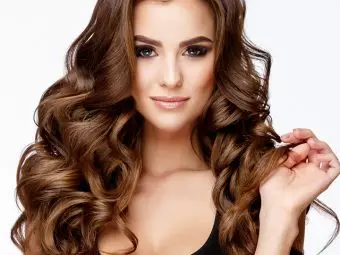 10 Best Medicines For Hair Growth With Good Results (2022)
10 Best Medicines For Hair Growth With Good Results (2022) How To Use Garlic For Hair Growth
How To Use Garlic For Hair Growth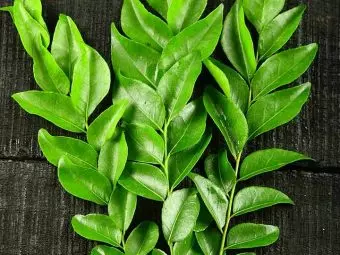 How To Use Curry Leaves For Hair Growth
How To Use Curry Leaves For Hair Growth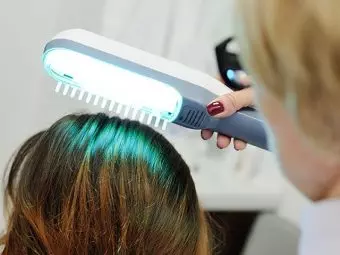 Top Clinics For Laser Treatment For Hair Growth In India
Top Clinics For Laser Treatment For Hair Growth In India Diet For Hair Growth: 11 Foods To Help Your Hair Grow Back
Diet For Hair Growth: 11 Foods To Help Your Hair Grow Back Best Exercises For Hair Growth
Best Exercises For Hair Growth How To Use Shikakai For Hair Growth
How To Use Shikakai For Hair Growth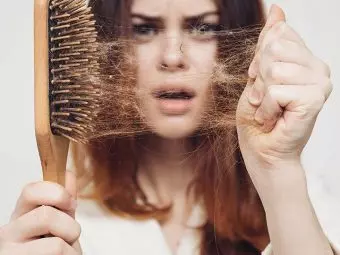 Does Castor Oil Help Treat Baldness?
Does Castor Oil Help Treat Baldness?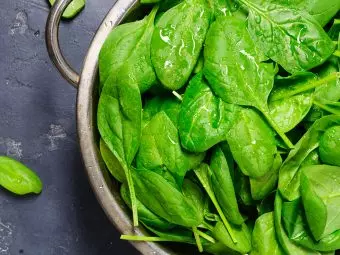 How To Use Spinach For Hair Growth?
How To Use Spinach For Hair Growth?